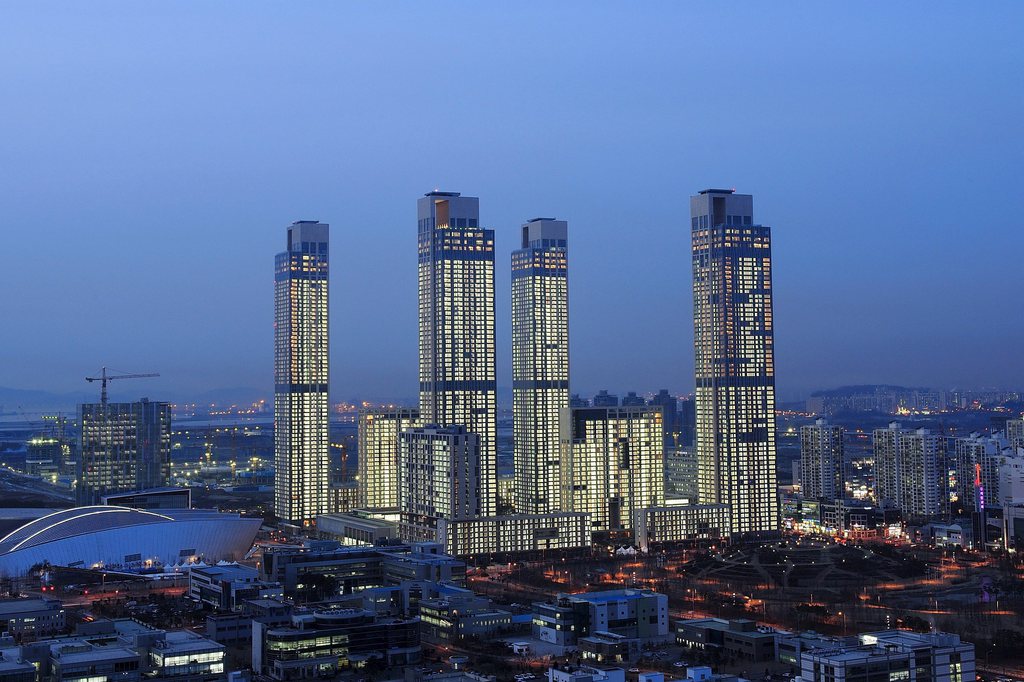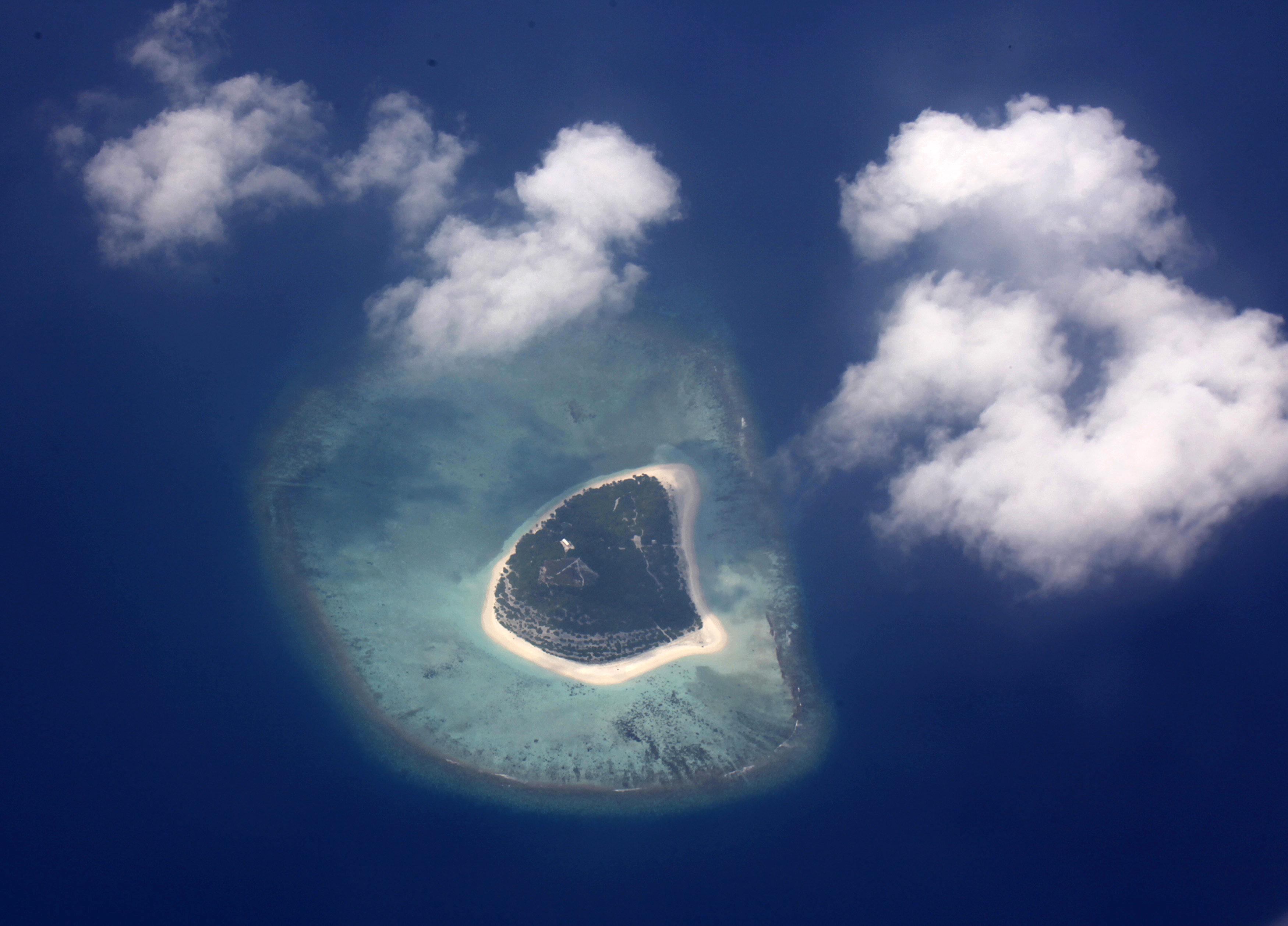Geneva’s green hub loses out to geopolitics

Switzerland should try to market Geneva’s international know-how better, says environmental consultant Yves Lador, who analyses the Swiss city’s failure to host the new United Nations climate fund.
Geneva’s ambitions to host the permanent secretariat of the Green Climate Fund (GCF) were dashed on October 20, when the fund’s board chose the South Korean city of Songdo as the new home for the environmental agency.
Switzerland had hoped to add another illustrious jewel to Geneva’s list of UN departments and environmental agencies, but was facing stiff competition – not only from Korea, but also Germany, Mexico, Poland and Namibia.
The decision to base the GCF in Korea needs to be ratified by the UN climate conference in Doha at the end of the year, but this is considered to be a formality.
The new UN climate fund, which was established at the end of 2011 during the 194-nation climate talks in Durban, South Africa, aims to channel $100 billion (SFr93 billion) a year in aid to developing nations from 2020.
Yves Lador has served since 1988 as the permanent representative to the UN in Geneva of Earthjustice, the public interest law firm for the environment. He has carried out advocacy at the Human Rights Council with regard to issues such as human rights and the environment, climate change and the right to water.
swissinfo.ch: How foreseeable was this decision to choose Songdo over Geneva?
Yves Lador: It was expected. When the Climate Fund board met in August in Geneva to agree on the voting procedure, you could already sense that Switzerland only had a slim chance of winning – and this got even smaller when Paris announced its decision to support Bonn’s candidacy.
It’s not Switzerland’s fault, but there is great demand for the headquarters of international organisations to be based in Asia. From this point of view, the choice of Seoul is perfectly logical.
swissinfo.ch: Is this a major loss for International Geneva?
Y.L.: It’s too early to say. We have to see whether the fund is going to really work. Over the past 20 years major financial promises have been made in all kinds of areas for various initiatives, but in the end very little money is actually donated.
If the Climate Fund only distributes a few billion dollars, it will not really be a strategic loss for Geneva. But if it manages to reach the $100 billion of aid a year promised, then this institution will become of strategic importance.
swissinfo.ch: Is this a sign that Geneva has lost its pulling power to attract new international organisations?
Y.L.: It all depends on the institution. If they are not of strategic political importance, Geneva can still attract new ones. But for the most important ones, intergovernmental politics always wins the day, which is to Geneva’s disadvantage.
swissinfo.ch: Switzerland is involved in long-running tax and banking disputes with its two main partners, the European Union and the United States. Do you think they had an influence on the decision?
Y.L.: Yes. In these major diplomatic, geopolitical battles, tax issues are important. Switzerland lost points in terms of image and attractiveness.
The closure of the pharmaceutical firm Merck Serono in Geneva was discussed in Singapore and Hong Kong. The fact that a high-tech firm closed in Geneva had quite a major media impact.
If we are talking about creating a technical agency which collaborates with other technical institutions, I don’t think the political climate plays a role. But if the decisions are of major geopolitical importance, then the political climate can become a liability.
swissinfo.ch: Will Geneva’s environmental hub be affected by the Climate Fund decision?
Y.L.: Yes and no. As we saw at the Rio [climate conference in 1992], states don’t want concentrations of skills and knowledge. Every state realises it has problems when it comes to the environment. They are therefore quite happy to hide the reality.
For climate issues, Geneva has institutions like the headquarters of the World Meteorological Organization (WMO) and the secretariat of the Intergovernmental Panel on Climate Change (IPCC). Political negotiations take place in Bonn and the financing will be done in South Korea. Institutions have been split up; there is a willingness to separate things to prevent them from functioning with maximum efficiency.
Nonetheless, for pure environmental questions Geneva offers advantages in a number of areas, such as chemicals.
swissinfo.ch: We have the impression that many international organisations are going through crises right now. How true is this?
Y.L.: You are right. International organisations still have a very negative image as almost all international cooperation mechanisms have been unable to produce anything tangible. This is also obvious at the regional level with the difficulties seen in the European Union, the major common market initiatives in Latin America, the African Union, and the Association of Southeast Asia Nations (ASEAN), which has been shaken by recent tensions between China and Japan.
At the same time a growing number of problems require regional or international cooperation. It’s impossible, for example, to deal with an epidemic without having an international mechanism to manage it like the one that exists in Geneva at the World Health Organization (WHO).
Geneva has technical skills that the rest of the world cannot do without. Geneva has to stop wondering what the international system can offer it, but rather look at how it can contribute to the better functioning of the planet. And it can do this by demonstrating what it can share with others.
The Geneva cantonal government congratulated Songdo for its nomination, while expressing regret that Geneva had not been selected.
According to Geneva’s cantonal president, Pierre-François Unger, “this setback will not stop our determination to continue our policy towards strengthening International Geneva”.
Swiss President Eveline Widmer-Schlumpf felt the decision was based on a wish to grant the headquarters to a non-European nation.
The Swiss authorities said they would push the fund’s executive board to initiate activities as soon as possible.
Swiss Foreign Minister Didier Burkhalter recalled that Switzerland and South Korea enjoyed close cooperation over international climate negotiation issues, in particular as part of the informal “Environmental Integrity Group”.
Geneva is home to the headquarters of 32 international organisations, such as the WHO, the WTO and the ICRC. “International Geneva”, as it is known, is worth around SFr3 billion a year to the canton.
In all, some 40,000 international diplomats and civil servants are based in Geneva; in addition there are around 2,400 staff working for 250 non-governmental organisations. Around 8,500 staff work for the United Nations in Geneva, which is the largest concentration of UN personnel in the world. There are also 169 permanent diplomatic missions to the UN.
(Translated from French by Simon Bradley)

In compliance with the JTI standards
More: SWI swissinfo.ch certified by the Journalism Trust Initiative





You can find an overview of ongoing debates with our journalists here. Please join us!
If you want to start a conversation about a topic raised in this article or want to report factual errors, email us at english@swissinfo.ch.